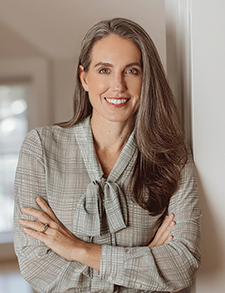 A few months ago, I spoke with an executive coach who said, “People at work are not your friends.” She is not my coach but is well-published and respected in the coaching community. Her words kept repeating in my mind over the past few months as I found this thought to be unsettling. I appreciate that this can be true in some work environments, but stating it as a universal truth saddened me about the future of our field and made me want to learn more about developing organizations in which this was not the case.
A few months ago, I spoke with an executive coach who said, “People at work are not your friends.” She is not my coach but is well-published and respected in the coaching community. Her words kept repeating in my mind over the past few months as I found this thought to be unsettling. I appreciate that this can be true in some work environments, but stating it as a universal truth saddened me about the future of our field and made me want to learn more about developing organizations in which this was not the case.
Explore This Issue
February 2025My research into the development and benefits of friendships at work led me to Adam Grant’s book, HBR’s 10 Must Reads on Building a Great Culture. One of the articles (https://tinyurl.com/yj5wah5y), written by Sigal Barsade and Olivia O’Neill, stood out; it discussed the importance not only of institutional cognitive culture but of the emotional culture as well. The authors define emotional culture as the shared affective values, norms, artifacts, and assumptions that govern which emotions people have and express at work and which ones they are better off suppressing. The authors contend that emotional culture is often not managed, causing companies to suffer.
I know that some will stop reading at this point, thinking that this month’s editorial is too soft and not relevant. Keep reading; perhaps I can convince you otherwise.
My research introduced me to a term that was new to me—companionate love—defined as the degree of affection, caring, and compassion employees feel and express toward one another. Companionate love has been demonstrated to improve employee well-being and patient satisfaction in healthcare settings, improve quality and safety on nuclear submarines, decrease anxiety and improve well-being in high-stress professions like firefighting, and increase personal accountability and job satisfaction in non-“helping” industries like engineering, higher education, and financial services. In a Bain and Company brief, (https://tinyurl.com/2m839v34), Drs. Adrienne Boissy and Erin Ney discuss the current crisis in the U.S. healthcare system and offer evidence that a virtuous cycle can be created by cultivating a culture of love.
Surgeons work in a high-stress, helping industry, so the benefits of companionate love should be very high. How can we create a positive emotional culture? Barsade and O’Neill recommend harnessing the compassion and gratitude people already feel, listening when employees express concern, and modeling the emotions you want them to have.
Harnessing compassion should be easier in healthcare than in other fields, as most who decide to go on the healthcare journey start with a profound desire to help others. We also have many examples of positive work relationships in our field. Last year at COSM, Dr. Goldberg and Dr. Murr shared how their friendship (which started as college freshmen and continues as faculty at UCSF) has been a tremendous benefit, both personally and professionally. I can also attest that some of my best friends are people in our field, and I treasure those relationships.
Model the emotions that you want to have in your work environment, as emotional culture is contagious and needs to be supported at all levels of the organization. I encourage you to talk about the benefits of your positive work friendships and how you retain them in challenging times. Recently, a former professor told me that I exude happiness. I could not think of a better compliment.
Friends at work or in the same profession have similar shared experiences that most spouses and friends outside of work have not had. This deep understanding of the challenges and interworking of a field allows us to help each other when others just do not quite understand the situation. Having this type of support in life is invaluable.
—Robin